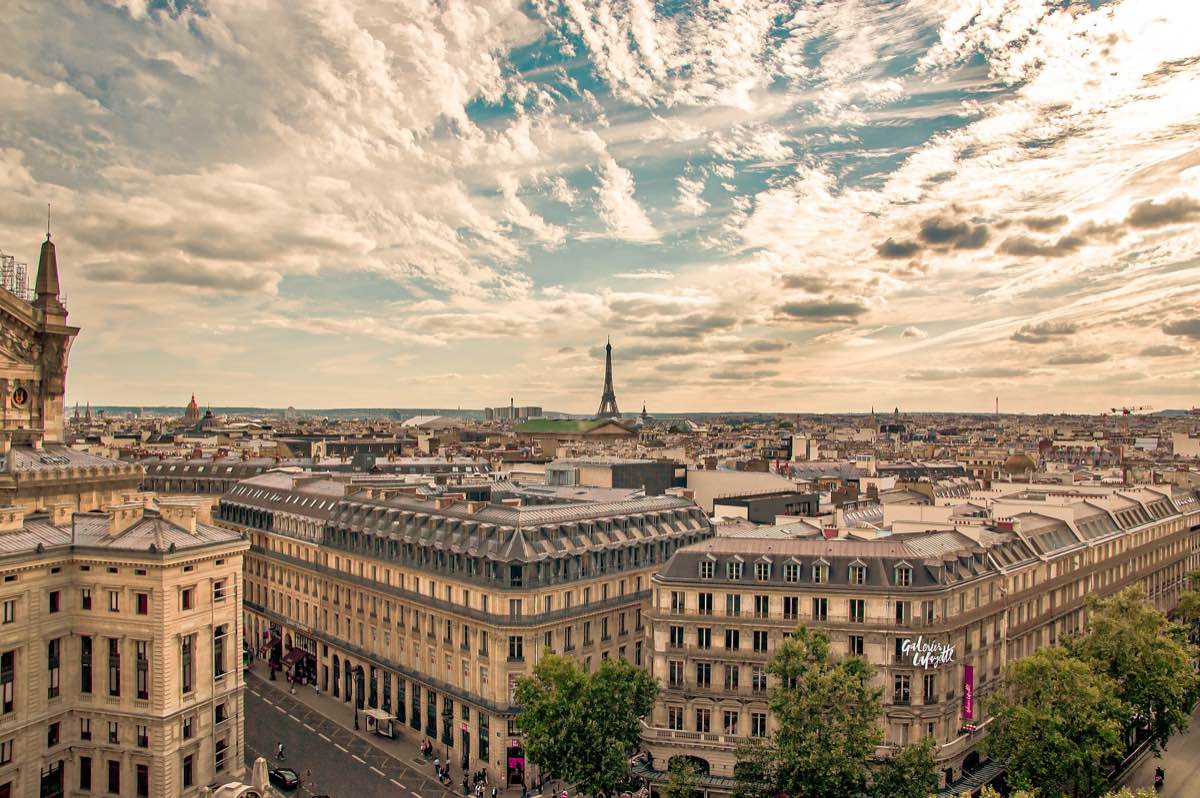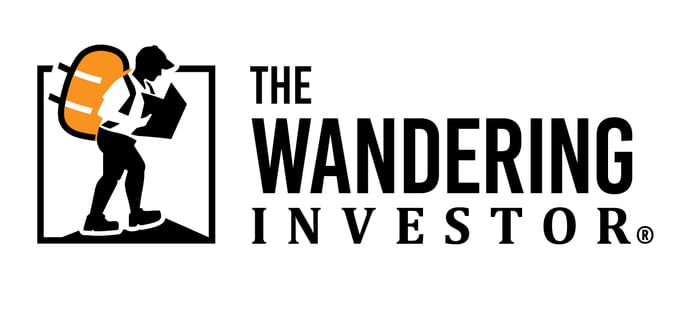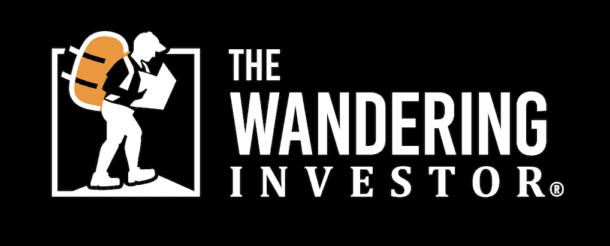Video: Why you should NOT Invest in Paris Real Estate
Apart from when public transport is on strike, I really enjoy spending time in Paris. Good food, entertainment, culture, flight connections, bookstores, shopping, etc. It’s an enjoyable place as a non tax resident.
However, investing in real estate in Paris is a completely different matter. I would absolutely not invest a cent there, and if I had any paid-off real estate in Paris I would sell.
In this short video I elaborate on 13 reasons why Paris real estate is a terrible investment at this point in time. Bear in mind that much of what I say is valid for other major Western European cities. London for example is also a market I would really stay away from.
I am staying away from Western European Real Estate
As soon as interest rates started rising, I sold real estate I owned in Western Europe such as in Austria. I have been redeploying to other investments, including to real estate markets that are cash markets and are not impacted by rising interest rates.
Will I go back to Western European real estate? Sure. At some point. But first, Western Europe needs to digest rising interest rates and face the full consequences of its horrific energy policies. We are at least a few years away from this stage.
Markets are cyclical. Western Europe is in the early phases of a nasty cycle.
Until then, I will be wandering in other markets.
To a World of Opportunities,
The Wandering Investor
If you want to read more such articles on other real estate markets in the world, go to the bottom of my International Real Estate Services page.
Subscribe to the PRIVATE LIST below to not miss out on future investment posts, and follow me on Instagram, X, LinkedIn, Telegram, Youtube, Facebook, and Rumble.
My favourite brokerage to invest in international stocks is IB. To find out more about this low-fee option with access to plenty of markets, click here.
If you want to discuss your internationalization and diversification plans, book a consulting session or send me an email.

Transcript of “Do NOT invest in Real Estate in Paris”
LADISLAS MAURICE: Hello, everyone. Ladislas Maurice from thewanderinginvestor.com. So today, I’m in beautiful Fontainebleau, 50 kilometers south of Paris, and I’ll be mentioning 13 reasons why I would not invest in Paris real estate.
1. Price to income ratio is too high in Paris
So the first one is that it’s become completely unaffordable for locals. In terms of price-to-income ratios, it’s one of the worst in the world after Hong Kong. So on average, Parisians need 15 years of salary to be able to afford a 60-square-meter apartment. New Yorkers, in contrast, need only 11 average incomes.
2. Rising interest rates
Secondly, prices have gone up to relatively crazy levels, if I can put it this way, thanks to or because of low interest rates. For about 10 years, French people could borrow at extremely low rates. So I know of a lot of people who are able to get 0.5% mortgage rates with 0% down, and they would even get 110% to cover not only the apartment, but also the closing costs. And typically, in France, they are, actually in 99% of cases, they are fixed rate mortgages. So in many ways, it’s good as in it won’t create any short-term shock in the market as interest rates keep rising, but as new buyers try to enter the market and rates keep going up, it definitely puts downward pressure.
3. Real estate prices have already started decreasing in Paris
Which is my number three point, is that prices have actually started dropping approximately two years ago. So it peaked at 10,500 euros a square meter. Since then, they’ve gone down to about 10,300 euros a square meter. We’re approaching the 10,000-euro square meter bar. I can see that there’s further downside, or at least no immediate upside as long as the Central Bank keeps raising interest rates. So essentially, I don’t see any capital gains in the near nor medium term.
4. Low gross rental yields and capitalization rates in Paris
So what about the yields? So in terms of gross yields, which is my point number four, they’re very low. In the lower end arrondissements neighborhoods of Paris, you can get gross 3.5%, and in the better arrondissements, approximately 3%. So gross yield is simply Rent × 12, which leads me to point number five, which is the net rental yields are very low.
5. Very low net rental yields and capitalization rates in Paris
You can run with the assumption that your apartment will be occupied 98% of the time because there’s strong demand in Paris, but then you’ll have to pay agencies to manage the apartment, to find tenants, you’ll have to pay the common charges, so HOA dues, which are high in Paris, you’ll need to pay for insurance as well as maintenance. And maintenance in Paris is very expensive. As soon as you need to hire labor to do any sort of work, it gets very expensive due to all of the taxes in France. So you can easily slash, and you also need to pay these property taxes which are typically at least one month of rent. So overall, you can take your gross yield, slash it by half, and you get your net yield. So the net yields are about one-and-a-half percent, which is extremely low.
6. The net yields will continue to go down
Point number six is that the yields are probably going to become even lower. Property taxes grew 80% between 2008 and 2018, and they keep going up faster than the rate of inflation. And as other taxes on real estate get reduced, a lot more get put onto property taxes. So that is a trend that you would expect to continue. Also, thanks to the European Union, there are now all of these green laws, which means that you need to do many renovations to make sure that your apartment is green and it’s compliant, etc., which, over time, adds up to cost but doesn’t really mean that you’re going to be making more rental income whatsoever. So you have to have a higher now maintenance or capex budget for your real estate, actually, all over France, because of all of these laws. And also, because there’s now rent control in Paris, you can expect that rent will increase over time at a lower rate than inflation, which will gradually squeeze your yields in net terms.
7. Paris is run by socialists
And point number seven, the city has always been run by socialists. You can expect curveballs coming from every angle in the direction of property owners and, specifically, landlords. So they’re not going to make things any better. You know, socialism may be great for a whole bunch of things, but certainly, when you’re a landlord, generally, socialists are not positive for you. So as long as Parisians keep voting for socialists, which has been the trend and which will probably continue being the trend, then you’re going to be facing issues as a landlord.
8. The population of Paris is decreasing
Number eight, the demographics of Paris aren’t actually that great. So France, generally, has one of the best demographics in Europe in terms of fertility rates. But the city itself of Paris has seen a population decrease, not much, about 50,000 people over the past 10 years. But still, it’s not a city that’s growing population-wise anymore.
9. Closing costs are high in France
Point number nine, closing costs are very high in France. So your round trip transaction costs will really impact your investment in a negative way. So roughly, when you purchase property in France, you would pay about 8% closing costs. And then, when you sell, you have to pay about 3% to 4% agency fees. So approximately 11% to 12% round trip transaction costs, which you essentially lose upfront when you make a real estate investment in Paris.
10. OECD claims France to have highest tax burden on real estate
Number 10, the OECD ranks France as having the highest tax burden on real estate in the OECD. So obviously, as a real estate investor, there are better destinations from that point of view. And again, it’s not about to change, the French government needs money. And generally, there are two taxes that the IMF and the World Bank keep recommending. It’s more taxes on immovable real estate, immovable property, because they won’t move, so you can tax it relatively easily, and, two, death taxes because, well, when you die, you die.
11. High income taxes on non-residents in France
And point number 11, your income tax will be very high as well. As a nonresident landlord receiving rental income in France, you will be paying anywhere between 37% and 47% combined for both income tax and Social Security taxes. So if you take your rental income, your net rental income of about 1.5%, and you reduce this by another essentially 37% to 47%, you’re left with barely anything. Does it even cover the depreciation in the asset? I’m not even sure. If you are a resident of the European Union, then these taxes will be approximately 10 percentage points lower because you get credits for your Social Security payments.
12. The war on Airbnb in Paris
Reason number 12, Paris is constantly fighting against Airbnb. There are new restrictions that keep popping up all the time. The number of days that you can put your property on the market, you need to pay extra taxes. And they have a whole team dedicated to compliance for the short-term rentals market. So if they catch you doing something that’s a little off, they’ll slap you with very, very heavy fines, and the neighbors will not hesitate to rat out on you.
13. Capital gains taxes on real estate are substantial in France
And then point number 13, even if you manage to make a fantastic investment in real estate in Paris, you sell, you make a fat profit, guess what? Very high capital gains taxes on income for 22 years. So if you hold your property for less than 22 years, you will have to pay capital gains taxes, and they are back-loaded. For every year that you hold the property, there will be a deduction, but these deductions are back-loaded. So the first five years have smaller deductions than the last five years. Then you’ll also need to pay Social Security taxes on your capital gains. And those you have to pay for up to 30 years, three-zero, after selling your property. So the official capital gains, 22 years, and then capital gains, which is essentially Social Security capital gains, 30 years, and also back-loaded.
So in every single angle that I look at, I just cannot find a good reason as to why I would make a real estate investment in Paris. If it’s pure lifestyle, sure. Even then, you need to be careful because it’s quite easy to get caught in the French tax net. If you just want to buy Paris real estate because you believe it’s gold, sure, do your thing. I would rather buy gold than Paris real estate. And also, Paris real estate means that you’re long in the euro, which is not necessarily a currency that I find the most attractive to invest in.
There are other markets that I find a lot more interesting in Europe and as well as outside of Europe, on other continents. So feel free to have a look at thewanderinginvestor.com, where I write reports on markets that I find interesting, and also other markets such as the one in Paris that I would not invest in.

